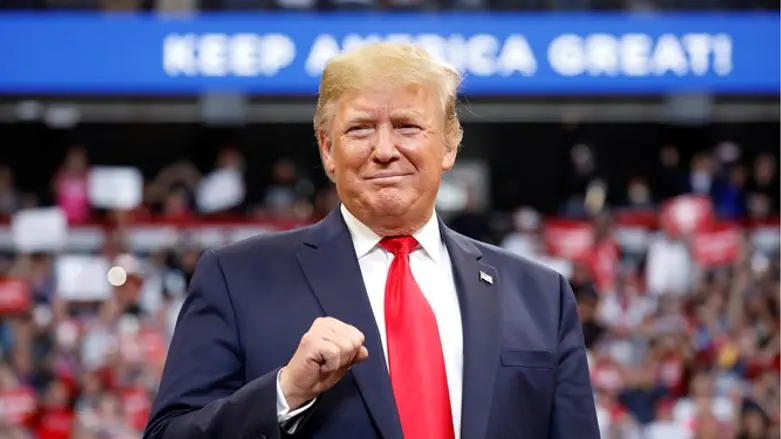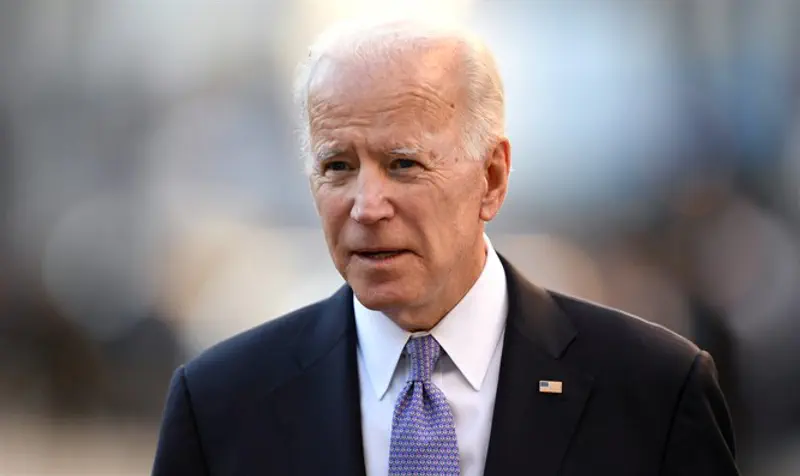
Donald Trump is the subject of an impeachment inquiry over allegations that he improperly sought help from Ukraine to boost his chances of re-election.
But the story is fast-moving and complex. Let's break it down.
Firstly; how does an impeachment process work?
Impeachment is the first part - the charges - of a two-stage political process by which Congress can remove a president from office. If the House votes to pass articles of impeachment, the Senate is forced to hold a trial.
A Senate vote requires a two-thirds majority to convict. As it stands, this is unlikely given that Mr. Trump's party controls the chamber. Unlikely, but not impossible.
The story so far:
Trump says he called his Ukrainian counterpart Volodymyr Zelensky on 25 July to congratulate him on his recent election victory. Mr. Zelensky, a former TV star with no political experience, was elected president in a landslide win in April.
But an anonymous whistleblower, reported to be a CIA official, felt there was something more serious in their exchange. They filed a formal complaint on 12 August explaining why they were so concerned. In their letter, the whistleblower admitted that they had not directly witnessed the call but said accounts shared by other officials had painted a consistent picture.
For context, about a dozen people are reported to have listened in on the conversation, including Secretary of State Mike Pompeo.
The whistleblower's complaint alleges the president used "the power of his office to solicit interference from a foreign country" in next year's presidential election (more on this later). They also allege White House officials were "deeply disturbed" by the call and acted to "lock down" all details of it.
It's important to note that the call occurred days after Mr Trump blocked $391m (£316m) in military aid to Ukraine. Critics argue this was used as a bargaining chip to pressure the new government in Kiev, but Mr Trump denies this.
Amid the growing controversy, Mr Trump promised to release a "complete, fully declassified and unredacted transcript" he said would prove the call had been "totally appropriate".
But the details disclosed by the White House were notes of the conversation. It was not a full, verbatim, account and it did little to quell the spiraling controversy. The whisteblower's complaint was made public shortly after. The transcript of the call showed Mr Trump had urged Mr Zelensky to investigate discredited corruption allegations against former Vice-President Joe Biden, a 2020 Democratic front runner, as well as Mr Biden's son.
Mr Trump and his allies have been suggesting that Mr Biden, as Barack Obama's vice-president, encouraged the firing of Ukraine's top prosecutor in 2015 because he had been investigating an energy company which employed Hunter Biden. At the time, by working closely with foreign-owned entities while his father was in the White House, Hunter Biden was criticized for leaving his father exposed to suggestions of a possible conflict of interest. But no evidence has emerged that Mr Biden took any action to intentionally benefit his son.
Hunter Biden denies wrongdoing. Officials in Kiev have said there is no evidence to support the allegations.

Mr Trump has pointed to a boast Mr Biden made in 2018 about how as vice-president he had threatened to withhold a billion dollars in aid from Ukraine unless the prosecutor was fired.
But motivation is key here. Mr Biden wanted him removed precisely because he was failing to crack down on corruption. And the vice-president was not acting alone, but rather as the focal point of a wider anti-corruption drive in Ukraine backed by the US government, European allies and the International Monetary Fund.
Mr Trump pressing a foreign leader to investigate the discredited allegations against Mr Biden is significant. This is because Mr Biden is the current favorite to win the Democratic nomination and, if chosen, he would be the man facing Mr Trump for the presidency in November 2020.
As Mr Biden is his biggest rival for the presidency, it opens Mr Trump up to claims he was working with a foreign power to influence the election. This - crucially - is against the law.
The Democrats have launched a formal impeachment inquiry and have spared no time in getting to work. A number of officials have been called to testify, including the US government's special envoy to Ukraine Kurt Volker who has turned over a trove of text messages and other relevant communications.
The acting ambassador to Ukraine, Bill Taylor, also told Congress that Mr Trump had made the release of the military aid conditional on Ukraine opening an investigation into the Biden's dealings. He also said there was "an irregular, informal channel of US policy-making" in the country more generally. The White House denies this was the case.
The president's personal lawyer, Rudy Giuliani, was subpoenaed for documents relating to Ukraine. Mr Giuliani has been central in pushing the allegations against the Bidens. Secretary Pompeo was also served with a subpoena.
When could there be a vote on impeachment itself?
House Judiciary Chairman Jerry Nadler said that it's "possible" a vote could be held in his committee on articles of impeachment before Christmas. After that committee vote, the articles, if approved, are given special status on the House floor and it requires a simple majority of voting lawmakers to approve them.
This full House vote would be the vote to impeach the President. However, if the White House and Democrats can't agree on documents and timings, delays are likely. The closer Democrats get to the president, the more complicated their inquiry will become.